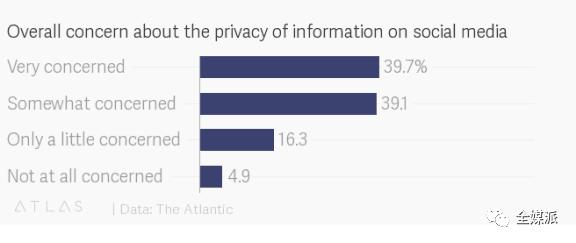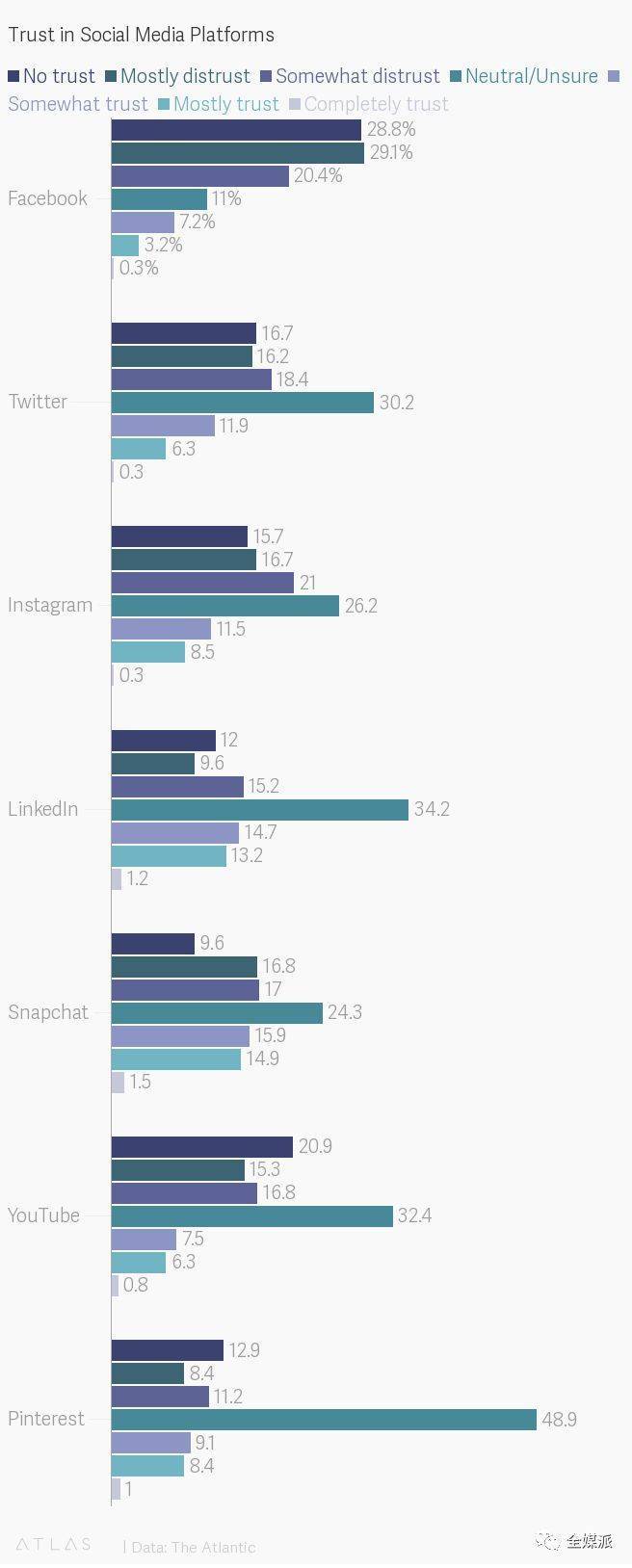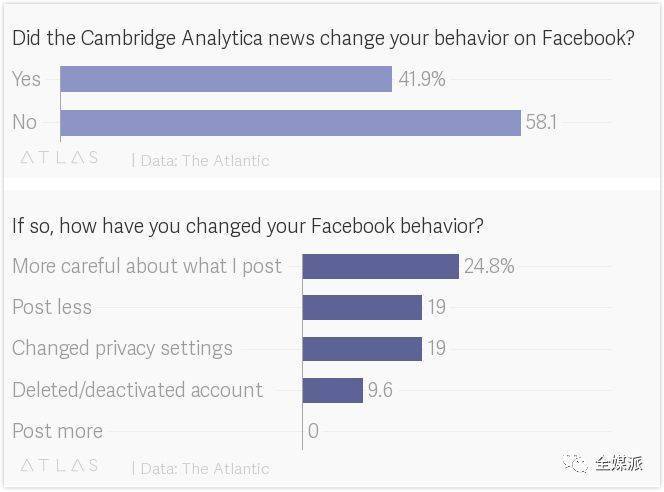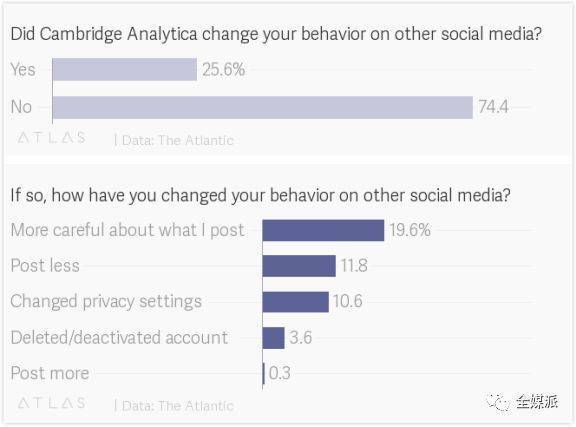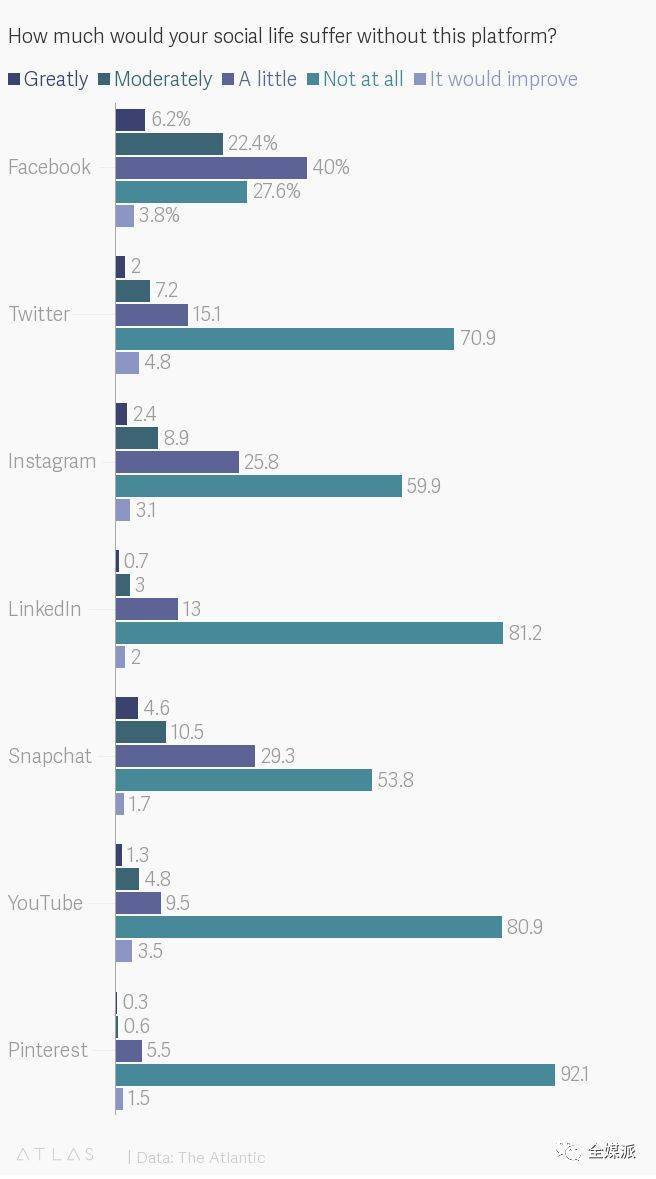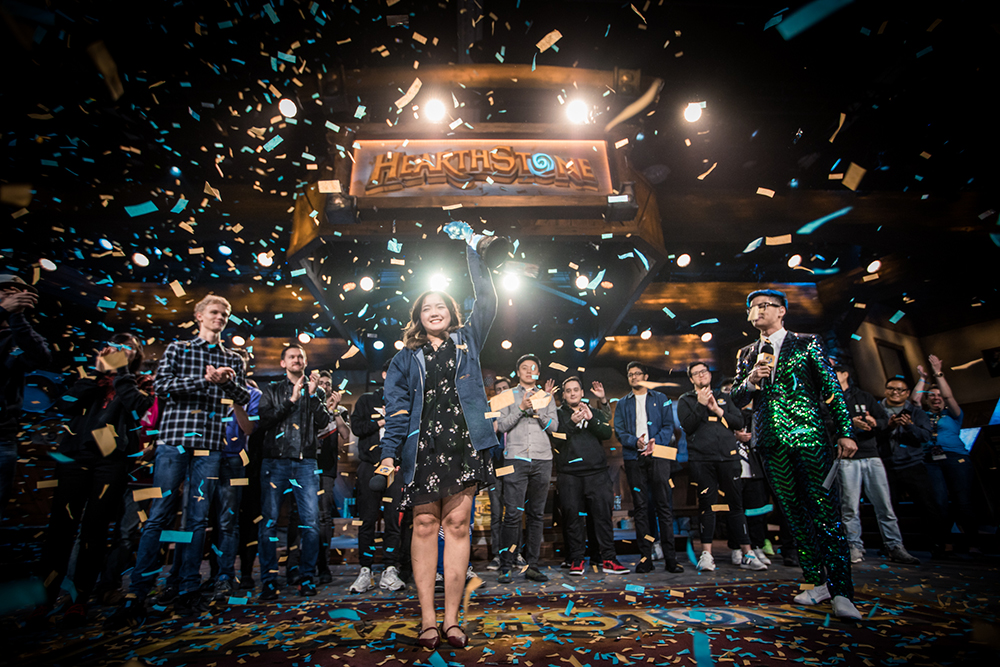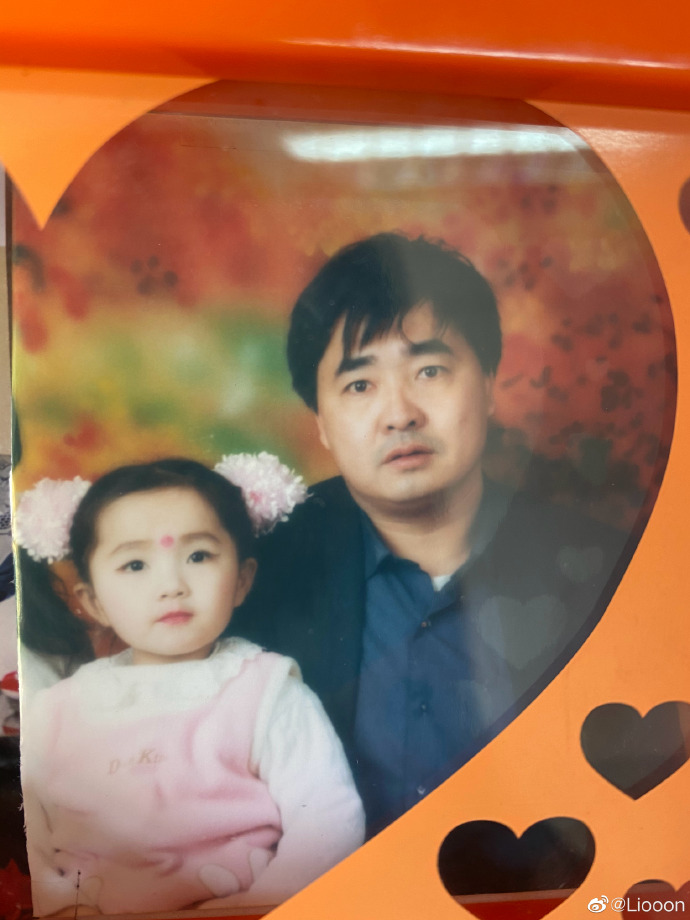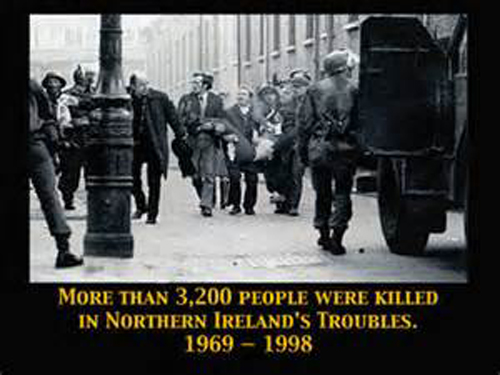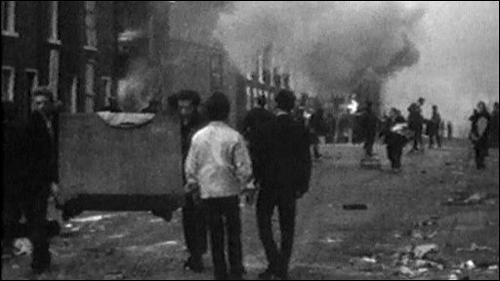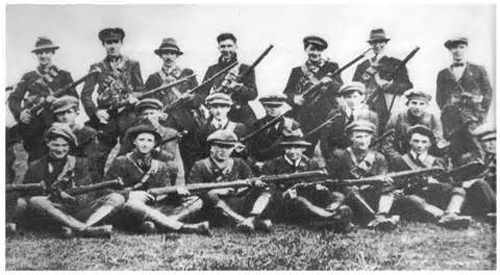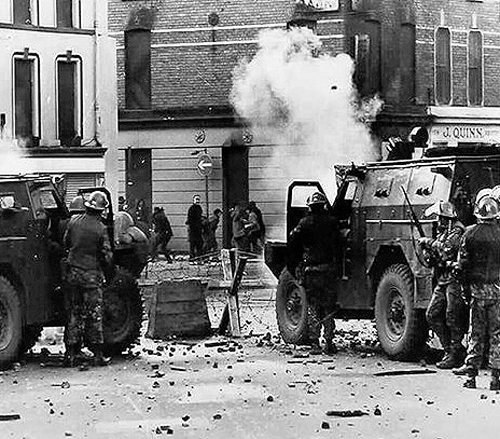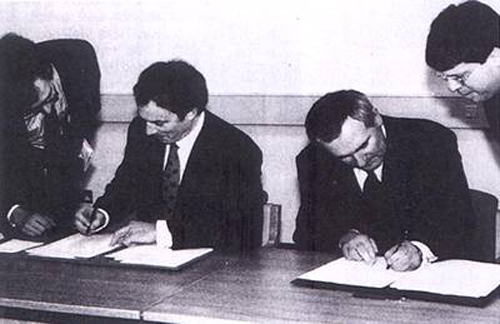New research by scientists has found that not only that, but also it can delay aging.
The original Web-to-Web Transformational Medicine Network is included in the topic # 660 contents of the latest research.


This article is original for Translational Medicine Network, please indicate the source.
Author: Tiffany
Introduction: Green tea, the most widely consumed tea, is characterized by clear soup and green leaves. Because green tea has not been fermented, it retains the most primitive substances in the fresh leaves of tea trees to the greatest extent. Among them, tea polyphenols, amino acids, vitamins and other nutrients have been largely retained, which provides the basis for the health care efficacy of green tea. For this reason, green tea is more and more popular with everyone. The popularity and popularity of green tea in the world has promoted the scientific community’s curiosity about it, and carried out research. Scientists want to find out whether this kind of green tea is beneficial to human health. What kind of role does it play? Recently, a group of scientists conducted in-depth research on the efficacy of green tea and made novel discoveries. ……
Lu You once wrote in "Try Tea": "The north window is high and snores like thunder, who will send vanilla for a dream?" It shows that tea has a refreshing effect. Tea is refreshing because it contains caffeine, which can excite the central nervous system and cerebral cortex to a certain extent, and has the effect of refreshing the mind and clearing the heart. In fact, green tea has more than one function, and it plays a certain role in people’s life and health. Here, let’s take a look at some effects of green tea:
Studies have shown that catechins in green tea have inhibitory effects on some bacteria that cause human diseases, and tea polyphenols have strong astringency, obvious inhibitory and killing effects on pathogenic bacteria and viruses, and obvious anti-inflammatory and antidiarrheal effects. Viruses and bacteria breed in summer, so drink more green tea to keep healthy.
In addition, there is a record in the Tang Dynasty’s "Materia Medica" that the efficacy of tea is "slimming after eating for a long time" because drinking tea has the effect of promoting digestion. Because caffeine in tea can increase the secretion of gastric juice and accelerate the digestion and metabolism of food. The cellulose in tea can also promote gastrointestinal peristalsis. Big fish and big meat can help digestion if you don’t digest it.
Also, fluorine and polyphenols in green tea are good for teeth. Green tea soup can effectively inhibit the reduction of calcium in human body, and also cooperate with the effect of sterilization and disinfection, which is beneficial to the prevention of dental caries, tooth protection and tooth fixation.
In addition, tea polyphenols and their oxidation products have the ability to absorb radioactive substances. Clinical trials of relevant medical departments have confirmed that cancer patients may cause mild radiation sickness with leukopenia during radiotherapy, and the treatment effect with tea extract is very good. Office workers spend a lot of time facing the computer, and they are unconsciously injured by radiation. Choosing green tea is indeed the first choice for white-collar workers.

Importantly, green tea also reduces the risk of cancer. Unfermented green tea keeps polyphenols from being oxidized. Tea polyphenols can block the synthesis of nitrosamines and other carcinogens in the body, and can scavenge free radicals and reduce the damage of free radicals to related DNA in cells. There is obvious evidence that free radicals can cause various discomfort symptoms in the body, among which cancer is the most serious one. Drinking green tea often removes free radicals in the body, thus reducing the risk of cancer.
Recently, scientists from the Health Science and Technology Department of the Federal Institute of Technology in Zurich launched an important research on green tea from two other angles. They wanted to explore the effects of green tea on health and aging, and what kind of relationship they had. These studies can help people make decisions and know how to buy and drink green tea. Let’s take a look at this interesting experiment and the findings from it.
Scientists published their research results in an article entitled "Green tea Catechings EGCG and ECG enhancement the fitness and lifespan of Caenorhabditis elegans by complex I connotation" in Aging-US:
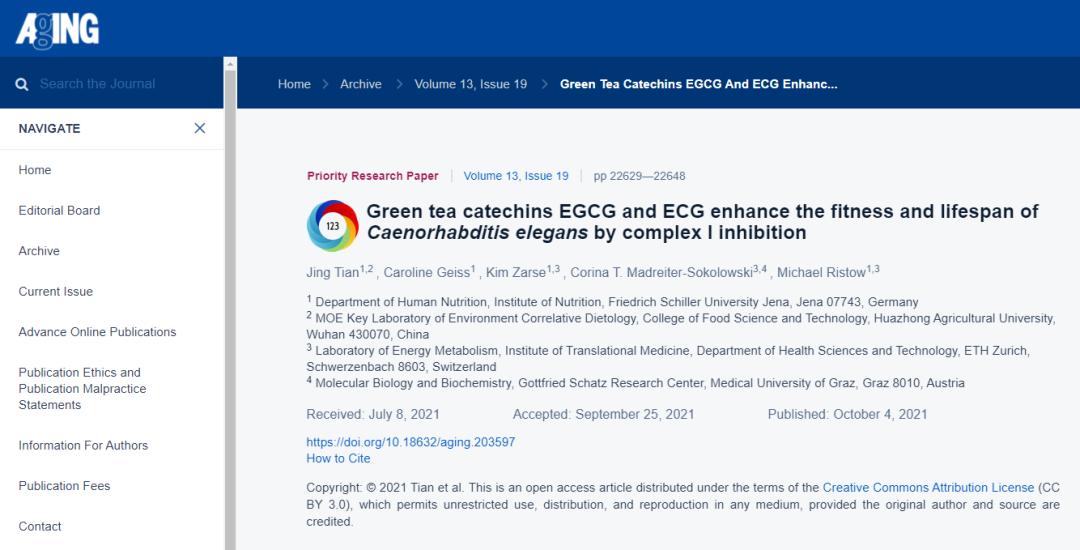
In recent years, some clinical trials and epidemiological studies in the scientific community have revealed that drinking green tea can bring health benefits, including: significantly reducing systolic blood pressure and fasting blood sugar, and promoting weight loss in patients with type 2 diabetes and obese women. The most abundant polyphenols in green tea are epigallocatechin gallate (EGCG), epigallocatechin gallate (ECG), epigallocatechin gallate (EGC) and epicatechin (EC), which constitute 30-42% of the solid extract of green tea. EGCG and ECG account for about 50% and 20% of the total catechins in green tea. These awkward names actually have great effects on human health. Let me introduce one of the most important ingredients —EGCG:
EGCG is the main catechin component in green tea, accounting for 59% of the total catechin components. It is an effective antioxidant, antiangiogenic and antitumor agent. EGCG has been used to study its role in chemoprevention of various tumors, including liver cancer, stomach cancer, skin cancer, lung cancer, breast cancer and colon cancer. Studies have shown that EGCG can induce cell apoptosis, promote cell growth stagnation and prevent cancer by affecting signal transduction pathways. Moreover, EGCG also has inhibitory effects on many viruses, including HCV, HIV-1, HBV, HSV-1, HSV-2, EBV, adenovirus, influenza virus and enterovirus, and several enzymes, including DNMTs, protease and DHFR.

Moreover, EGCG has an unexpected and important inhibitory effect on COVID-19. In 2020, since the outbreak of COVID-19, the Key Laboratory of Pu ‘er Tea Science of Yunnan Agricultural University, in view of the biological characteristics, transmission characteristics and emergency needs of public health risk prevention and control in novel coronavirus, and in conjunction with Kunming Bio-manufacturing Research Institute Co., Ltd., has carried out emergency scientific and technological research on virus prevention and research and development of related preparations, focusing on screening effective molecules that can block virus infection and prevent and treat Covid-19 infection from food and medicine homologous plant molecules. Under the leadership of Professor Sheng Jun, the research team has made breakthrough progress. The research team found that EGCG (epigallocatechin gallate), an effective monomer molecule screened from tea, can strongly bind Covid-19 S protein (Kd=121nM) and effectively block the binding between Covid-19 S protein and human ACE2 receptor. At the same time, it is found that EGCG can not only prevent the combination of the two, but also promote the dissociation of the S protein that has bound to the receptor. At present, no molecule has been found at home and abroad that has strong affinity with Covid-19 S protein and can effectively block the binding between S protein and ACE2. This discovery provides very valuable scientific data for the development of related preparations for the prevention and treatment of Covid-19 infection, and at the same time provides an innovative model for emergency screening of antiviral components from the treasure house of edible and medicinal plants and rapid clinical use.
A previous randomized, placebo-controlled clinical trial confirmed how safe it is to take 400 mg of EGCG daily for one year. Further data showed that after 6 months, the plasma EGCG concentration reached a measurable level. In this new experiment recently, scientists tested the bioavailability of EGCG and various food supplements. After fasting for one night, scientists gave them 150 mg of green tea extract. After 60-180 minutes, their plasma level peaked at 10 ng/ml/kg. Experiments in different model organisms show that the beneficial effects of green tea catechins on life span are due to metabolic adaptation and enhanced resistance to reactive oxygen species (ROS). For example, adding EGCG-rich green tea extract (10 mg/ml EGCG) to the diet can affect the glucose metabolism of Drosophila melanogaster, improve its health quality and prolong its life. In addition, green tea polyphenol water (80 mg/l) can prolong the life span of male C57BL/6 mice. In addition, the treatment of Caenorhabditis elegans with EGCG with a concentration of 50-300 μM can promote the longevity of Caenorhabditis elegans, among which 200 μM EGCG is the most effective dose to prolong the longevity through AMPK/SIRT1 and FOXO.
However, the bioavailability of green tea catechin in mammals is poor, which makes it unlikely to reach this concentration after oral administration in humans. However, some independent clinical trials have confirmed that drinking green tea can improve many health indicators. The maximum plasma concentrations of EGCG, ECG and EC in human body are about 2.5 μM after administration of up to 4.5 g decaffeinated green tea solids. Therefore, we tested whether 2.5 μM is still enough to prolong the life of nematodes by inducing mitogen response. Through experiments and summary, we found that EGCG and ECG enhanced the fitness and life span of Caenorhabditis elegans at the concentration of 2.5 μM m. This relatively low dose is enough to inhibit the activity of mitochondrial respiratory chain of nematodes. In addition, the temporary increase of reactive oxygen species may promote the activity of PMK-1, thus promoting the corresponding signal cascade including SKN-1 and DAF-16. These signal pathways can enhance the activities of reactive oxygen defense enzymes, such as superoxide dismutase and catalase, enhance the ability of anti-oxidative stress, improve health level and prolong people’s life span, thus causing adaptive response. As long as the metabolism changes for a long time, the fat content will be significantly reduced.
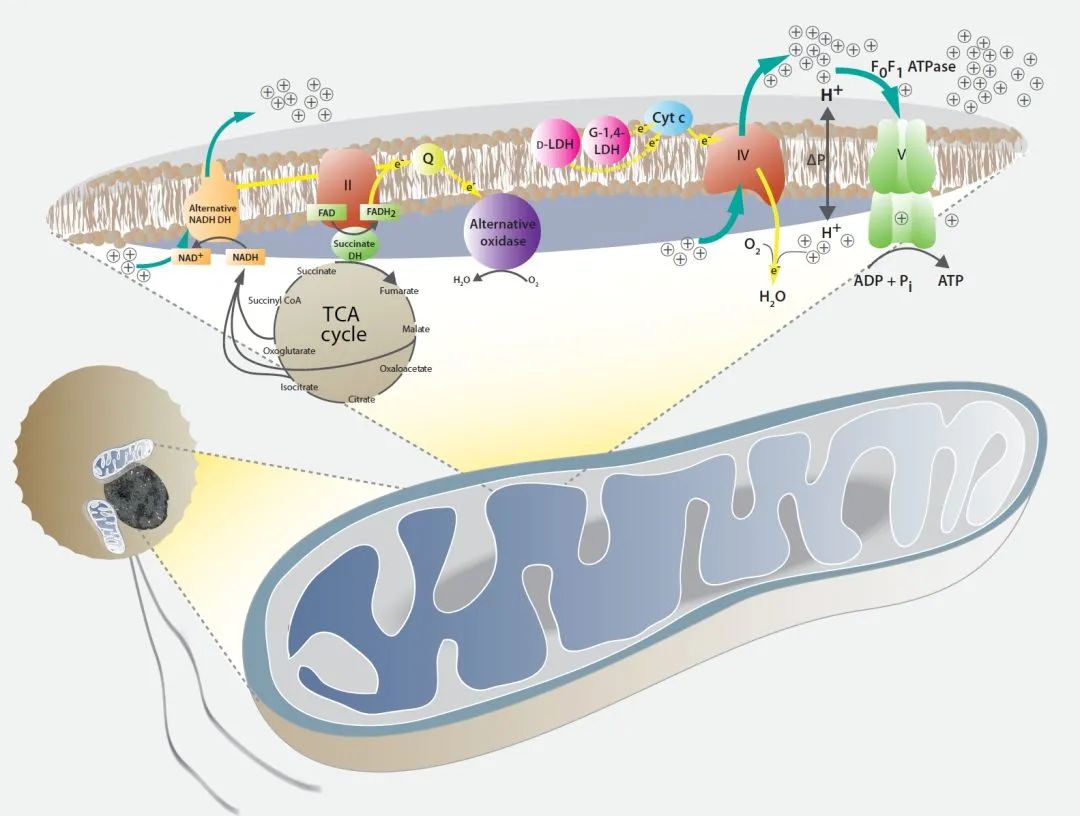
Although the bioavailability of EGCG and ECG is relatively low, drinking 4 cups of green tea every day for 8 weeks can significantly reduce body weight. It has been reported that EGCG of 50-300 μM can prolong the life of Caenorhabditis elegans. Here, we show that 2.5 μM EGCG and ECG can also reach this concentration, which is enough to prolong life. In addition, its function is to increase anti-stress ability through adaptive mechanism. In this cellular rhythmic reaction, EGCG and ECG initially played the role of pro-oxidant by stimulating the increase of reactive oxygen species. EGCG and ECG show anti-oxidation characteristics for a long time because instantaneous reactive oxygen species burst can induce anti-oxidation defense mechanism. At high concentration, EGCG and ECG may have harmful effects due to excessive reactive oxygen species. This feature has become obvious in the study of cancer cells. EGCG is an amphoteric molecule with hydrophilic and lipophilic characteristics, which makes it not only fully soluble and widely distributed in the body fluid environment, but also allows it to cross the cell membrane and combine with intracellular targets. The unique structural characteristics of EGCG endow it with anti-cancer properties, which makes it not only play a role in preventing cancer at the initial stage of carcinogenesis, but also play an important role in controlling the progress and metastasis of cancer. EGCG can be used for many cancer types such as liver cancer, lung cancer and prostate cancer. The antioxidant potential of low concentration green tea catechin is considered as a potential solution to prevent tumor occurrence.High dose of catechin may be used as an anti-tumor drug because it can induce the formation of a large number of reactive oxygen species and apoptosis. It is worth noting that EGCG is more effective than ECG in inducing cytotoxicity of human tumor cells and inhibiting the movement of cancer cells. In fact, EGCG takes only 6 hours, while ECG takes 12 hours to affect mitochondrial respiration, reactive oxygen species and ATP levels. However, these compounds have similar effects in long-term use, and they can have similar effects in prolonging life, enhancing sports and resisting stress!

Catechins can not only trigger cell division reaction by influencing transcription factors and enzyme activities, but also exert direct antioxidant potential by scavenging active oxygen. Although some studies have reported a moderate increase in plasma antioxidant capacity after drinking green tea, compared with the antioxidant potential of glutathione reaching 1-11 mM level in cells, the proportion of catechins with complete structure reaching the target tissue is still negligible. Through experiments, we can confirm that it is necessary to increase the initial level of reactive oxygen species in order to induce the adaptive mechanism and improve the antioxidant performance.
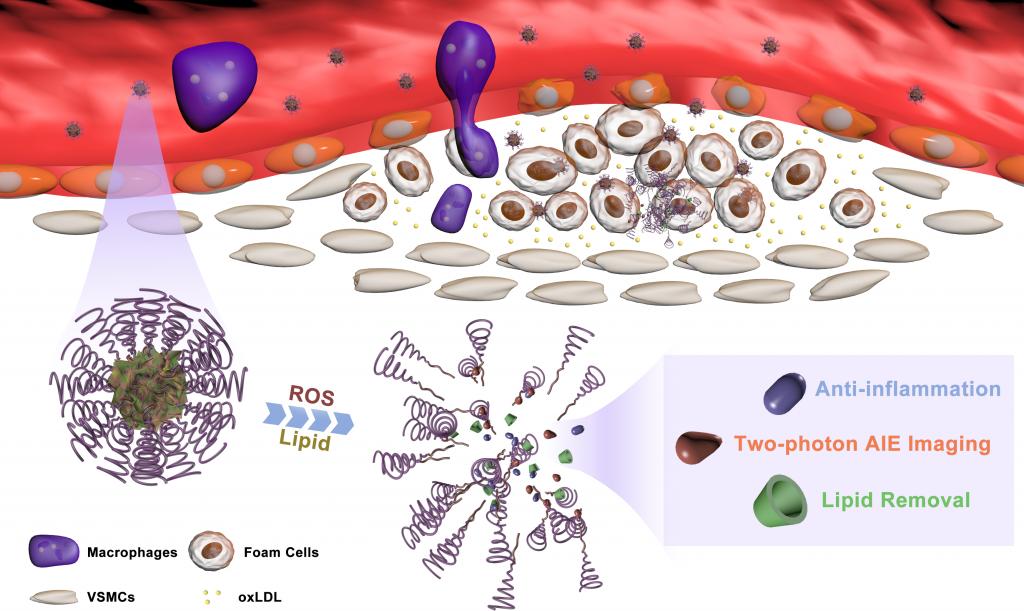
Previous studies have shown that in the cell culture model, after the application of 50 μM EGCG, the level of hydrogen peroxide increased and the level of glutathione decreased in a dose-and time-dependent manner. However, the mechanism of reactive oxygen species formation induced by EGCG and ECG is still unclear. In the present study, we found that EGCG and ECG inhibited ETC complex I. Experiments on cerebellar granule neurons in rats show that EGCG accumulates obviously in mitochondria, and this polyphenol accumulates in mitochondria up to 90-95%. This finding is consistent with a large number of literatures describing polyphenols as compounds targeting mitochondria. Therefore, we isolated mitochondria to study the effects of EGCG and ECG on mitochondrial ETC complex. The separated mitochondria are separated from their natural environment and signal transduction process, and the separation process brings the risk of shearing force destroying the mitochondrial membrane. However, the uptake of drugs by mitochondria depends on the integrity of inner and outer membranes of mitochondria, including the functions of transporters and carriers. Since 25 μM EGCG and ECG are necessary to significantly inhibit the activity of mitochondrial complex I isolated from mouse liver and hinder the mitochondrial respiration of mitochondria isolated from rat liver, we assume that the separation process affects the integrity of mitochondrial membrane, so mitochondria have the potential to effectively absorb catechins.
In addition, we found that the temporary obstruction of mitochondrial respiration is accompanied by the temporary increase of reactive oxygen species (ROS) level and the temporary decrease of ATP, which triggers the signal pathways related to life extension. EGCG and ECG can promote life extension, benefit health and enhance stress resistance when used in low doses.
Experimental results
The oral absorption and absolute bioavailability of green tea catechins in mammals are very low. After ingesting no more than 4.5 g of decaffeinated green tea solids, the highest plasma concentration reaches 2.5 μM m.. However, some independent clinical trials have reported the beneficial effects of EGCG and ECG on health parameters. Therefore, we assume that lower concentrations of EGCG and ECG are still effective and improve the life span and stress resistance of nematodes. In fact, the application of EGCG and ECG at a concentration of 2.5μM is enough to significantly expand the medium and thus prolong the life of Caenorhabditis elegans:

Next, we tested whether prolonging life is also related to improving health and stress resistance. Exercise depends on functional muscle mass, connective tissue and neuron signals. Therefore, exercise ability is a suitable sign of health. In our experiment, nematodes were given EGCG and ECG, and after 7 days, it was observed that their motor ability was obviously improved:
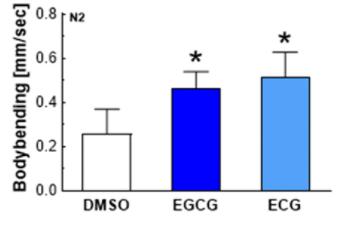
In addition, the tolerance of nematodes to free radical generator paraquat was significantly improved after ingesting ECGC and ECG for 7 days. Therefore, our conclusion is that EGCG and ECG can enhance and obviously improve their health and stress resistance! These two indicators are the key to health!
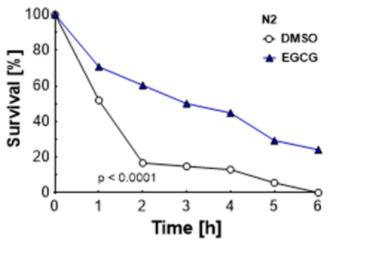
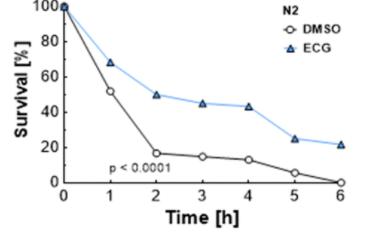
In a word, from our experiment, we found that the application of green tea catechin EGCG and low dose ECG can prolong the life span of nematodes by inducing cell division reaction. Therefore, inhibition of complex I caused a transient increase in ROS, stimulated antioxidant defense enzymes SOD and CAT, and activated PMK-1/SKN-1/DAF-16 pathway. In addition, the inhibition of complex I leads to the temporary decrease of ATP level in cells, thus activating AAK-2/SIR-2.1 signal. In the long run, if these energy-dependent and ROS-dependent pathways are reconnected, it will lead to the reduction of fat content, which will be more beneficial to people’s health and prolong their life.
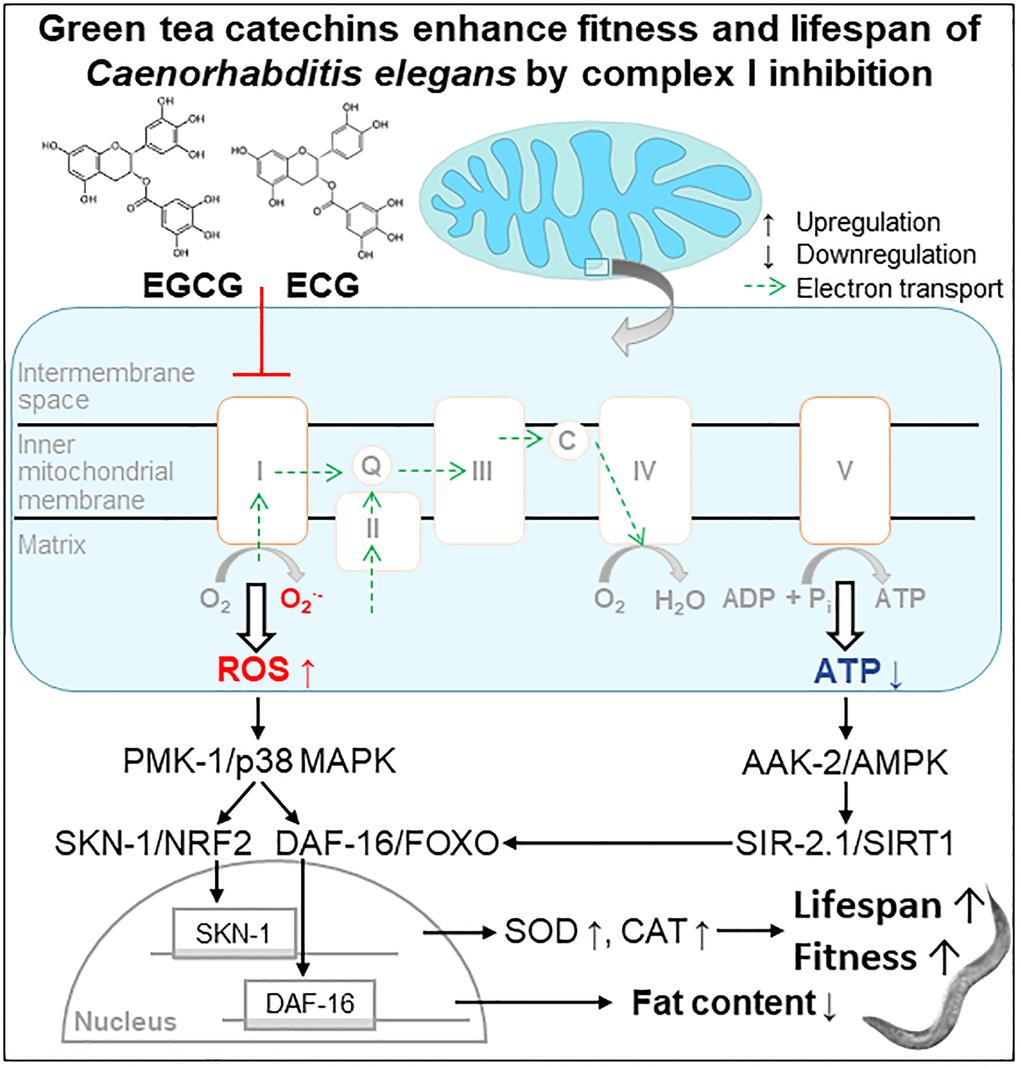
Our clinical trials have confirmed the safety of EGCG and emphasized that EGCG has great potential in fighting age-related cardiovascular and metabolic diseases! The experimental study on the physical and clinical parameters of rodents over time requires further clinical trials to determine the optimal time and dosage of catechins. Finally, these studies describe the additional effect and downstream mechanism of complex I inhibition. Although promising results have been obtained in animal experiments, the low bioavailability of EGCG still raises a question, that is, whether green tea catechin can effectively produce reliable and beneficial effects in humans. Therefore, scientists need more efforts to identify complex I inhibitors with higher bioavailability.
After reading this article, do you have a deeper understanding of the efficacy of green tea? Its efficacy can be said to be multifaceted. In life, it can not only improve our health quality; In the face of diseases, it also plays a certain role in preventing fatal diseases. Therefore, in life, it should become a role that cannot be ignored!

References:
https://www.aging-us.com/article/203597/text
Note: This article aims to introduce the progress of medical research, and cannot be used as a reference for treatment programs. If you need health guidance, please go to a regular hospital.
Read the original text

